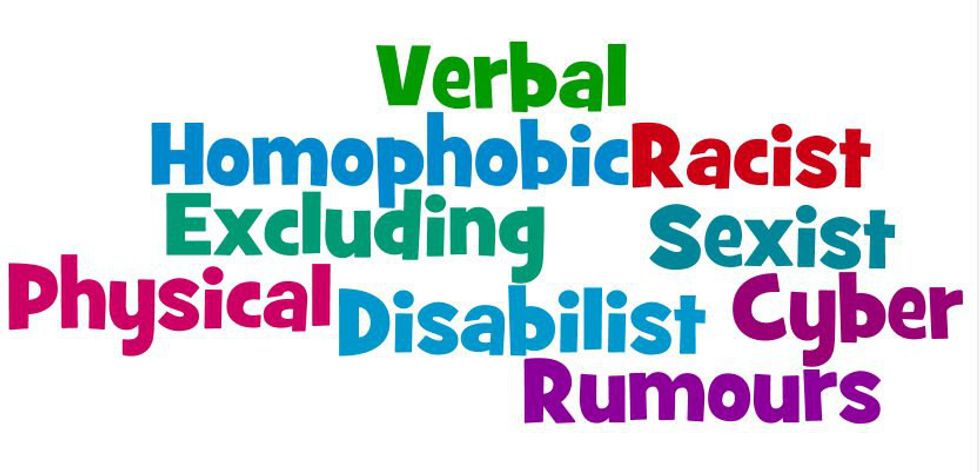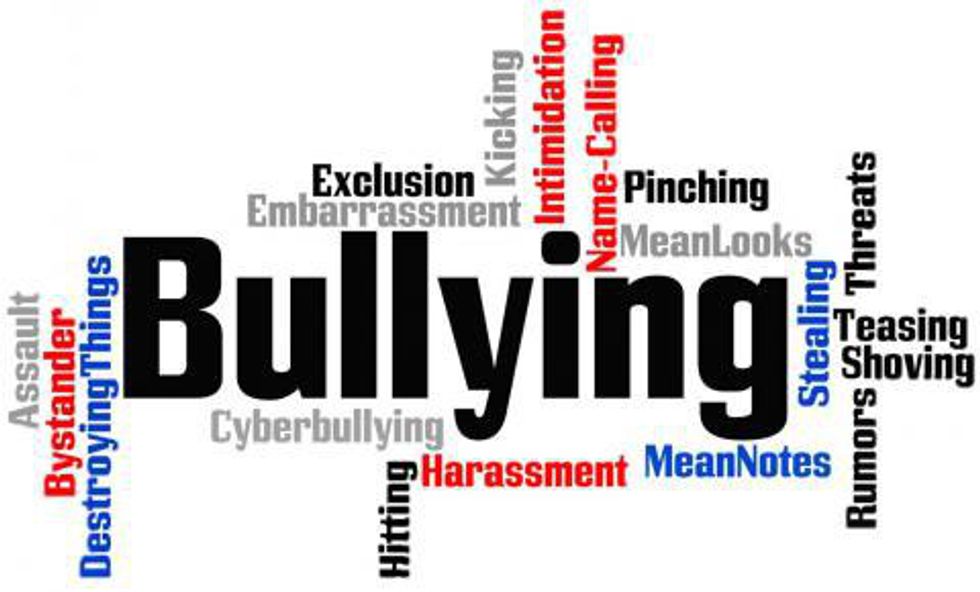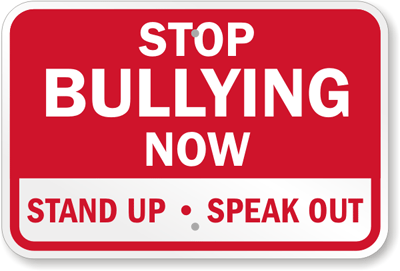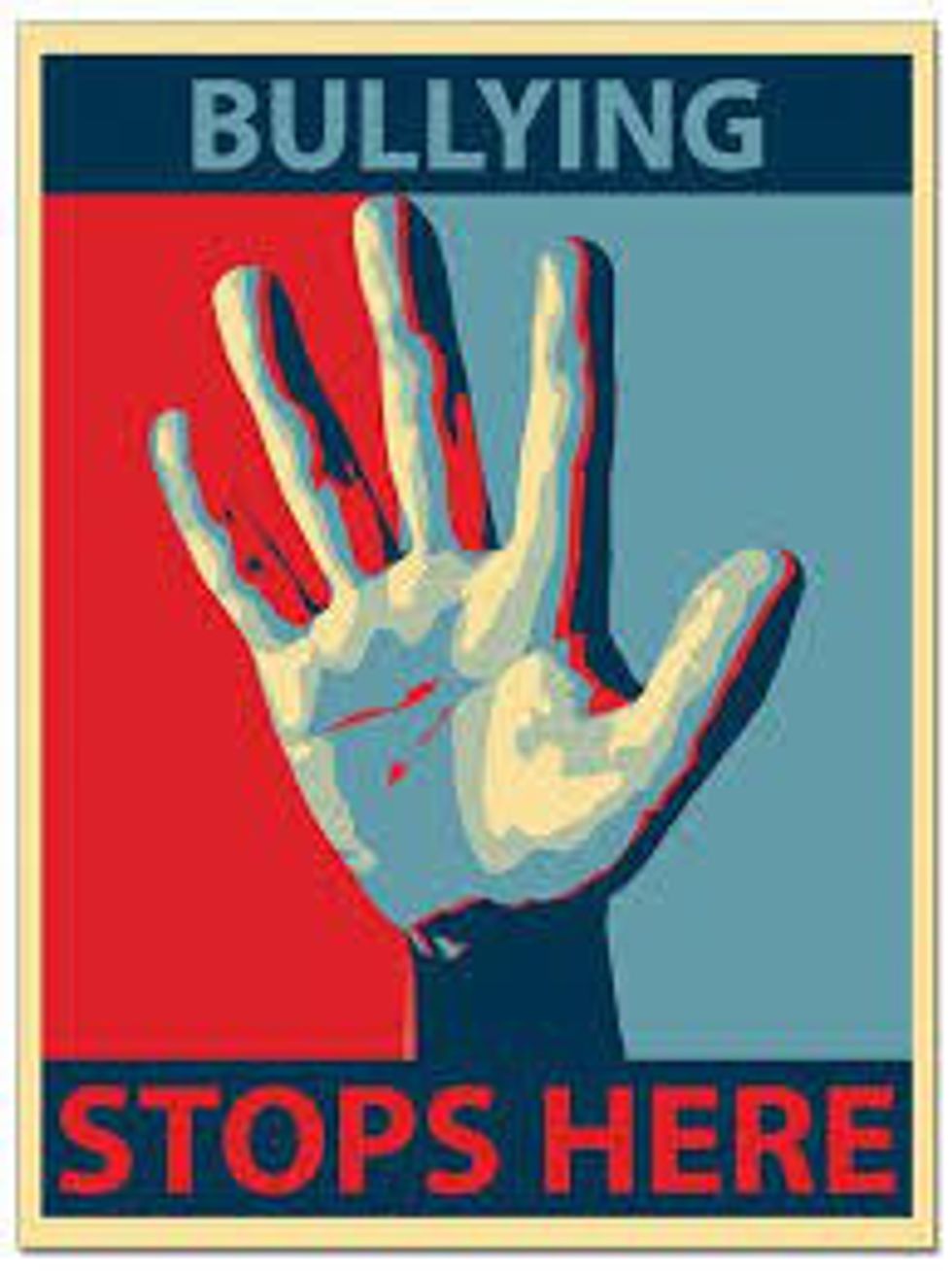When I was a child, I was “picked on” because I was tall and thin. I was made fun of because of my skin color. Whatever “acceptable” was, I was surely not it.
The definition of bullying is any unwanted, aggressive behavior that involves a real or perceived power imbalance. This is more popular with school-aged children than adults, but it is is not a gender- or age- specific type of situation. Bullying also includes such actions as making threats, spreading rumors, attacking someone physically or verbally and excluding someone from a group on purpose.
Excluding someone or a certain group of people due to race, religion, nationality, or creed can be considered bullying as well as racist. Studies have shown that bullying can have short- and long-term psychological consequences, including depression.
As a parent, it is important to look for signs of your child is being bullied or is being a bully. Let’s start with the signs to look for to see if a child is being bullied:
Unexplained injuries;
Lost or destroyed clothing, books, electronics or jewelry;
Frequent headaches or stomach aches, feeling sick or faking illness;
Changes in eating habits, like suddenly skipping meals or binge eating–kids may come home from school hungry because they did not eat lunch;
Difficulty sleeping or frequent nightmares;
Declining grades, loss of interest in schoolwork or not wanting to go to school;
Sudden loss of friends or avoidance of social situations;
Feelings of helplessness or decreased self esteem;
Self-destructive behaviors such as running away from home, harming themselves, or talking about suicide.
If you have noticed any of these signs, then you should discuss these issues with the child or the school they attend.
There has been an increasing and alarming number of LGBT youths and adults in the facing bullying. A question that we should ask ourselves is, how can we create a safe environment for LBGT youth? Parents, schools and communities can all do their part by helping LBGT youth feel safe physically and emotionally by:
Building strong connections and keeping the lines of communication open. Some LGBT youth feel rejected. It is important that they know their families, friends, schools and communities support them.
Establishing a safe environment at school. Schools can send the message that no one should be treated differently because they are or are perceived to be LGBT. Sexual orientation and gender identity protection can be added to school policies.
Creating gay-straight alliances (GSAs). GSAs help create safer schools. Schools must allow these groups if they have other “non-curricular” clubs or groups.
Protecting privacy. Be careful not to disclose or discuss issues around being LGBT with parents or anyone else.
Federal civil rights laws do not cover harassment based on sexual orientation. Often, bullying of LGBT youth targets their deviance from gender norms. This may constitute sexual harassment, covered under Title IX.
Children or adults with special needs also fall prey to bullying and harassment. Children with disabilities, such as physical, developmental, intellectual, emotional and sensory disabilities are at an increased risk of being bullied. Any number of factors–physical vulnerability, social skill challenges or intolerant environments–may increase the risk. Research suggests that some children with disabilities may bully others as well.
Kids with special health needs, such as epilepsy or food allergies, also may be at higher risk of being bullied. Bullying can include making fun of kids because of their allergies or exposing them to the things they are allergic to. In these cases, bullying is not only emotional; it can be deadly.
When bullying is directed at a child because of his or her established disability and it creates a hostile environment at school, bullying behavior may cross the line and become “disability harassment.” Under Section 504 of the Rehabilitation Act of 1973 and Title II of the Americans with Disabilities Act of 1990, the school must address the harassment.
Media reports often link bullying with suicide. However, most youth who are bullied do not have thoughts of suicide or engage in suicidal behaviors.
Although kids who are bullied are at risk of suicide, bullying alone is not the cause. Many issues contribute to suicide risk, including depression, problems at home, and trauma history. Additionally, specific groups have an increased risk of suicide, including American Indian and Alaskan Native, African American, Asian American, lesbian, gay, bisexual and transgender youth. This risk can be increased further when these kids are not supported by parents, peers, and schools. Bullying can make an unsupportive situation worse.
Young adults who witness bullying and do nothing to thwart the behavior or actions of a bully, are more likely to:
Use tobacco, alcohol, or other drugs;
Have mental health problems, including depression and anxiety;
Miss or skip school/work.
Children who bully others can also engage in violent and other risky behaviors into adulthood. Kids who bully are more likely to:
Abuse alcohol and other drugs in adolescence and as adults;
Get into fights, vandalize property and drop out of school;
Engage in early sexual activity;
Have criminal convictions and traffic citations as adults;
Be abusive toward their romantic partners, spouses or children as adults.
When adults respond quickly and consistently to bullying behavior they send a loud and clear message that it is not acceptable. Research has shown this can stop bullying behavior over time. There are simple steps adults can take to stop bullying on the spot and keep kids safe:
Intervene immediately–it is okay to get another adult to help;
Separate the kids involved;
Make sure that everyone is safe;
Attend to any immediate medical or mental health needs;
Model respectful behavior when you intervene.
The police or authorities should be contacted if:
A weapon is involved;
There are threats of serious physical injury;
There are threats of hate-motivated violence, such as racism or homophobia;
There is serious physical harm;
There is sexual abuse;
Anyone is accused of an illegal act, such as robbery or extortion–using force to get money, property, or services.
Be more than a bystander. It is the responsibility of everyone to help create a better and safer environment at our schools, colleges and workplaces. Bullying, harassment and racism create an unsafe environment, tensions, stress and can even have long term effects on a person result in death. Identify bullying behavior and put a stop to it. Bullying is a very serious matter, and it can even develop into a very serious legal matter. Stop the hate.

























